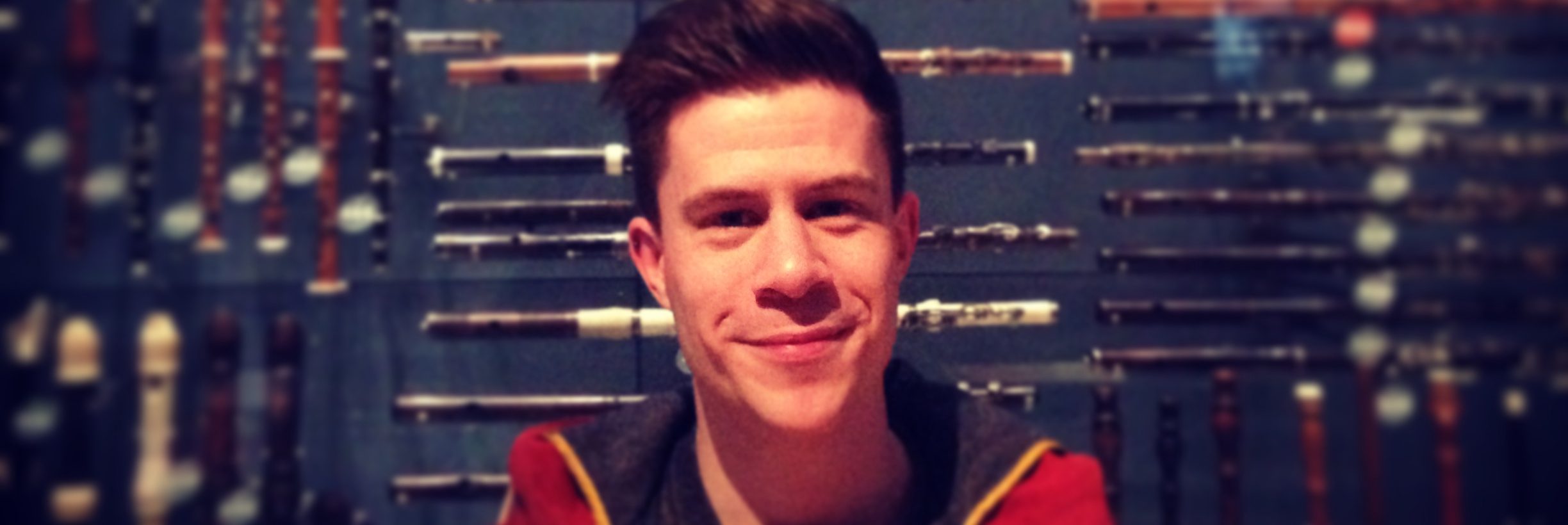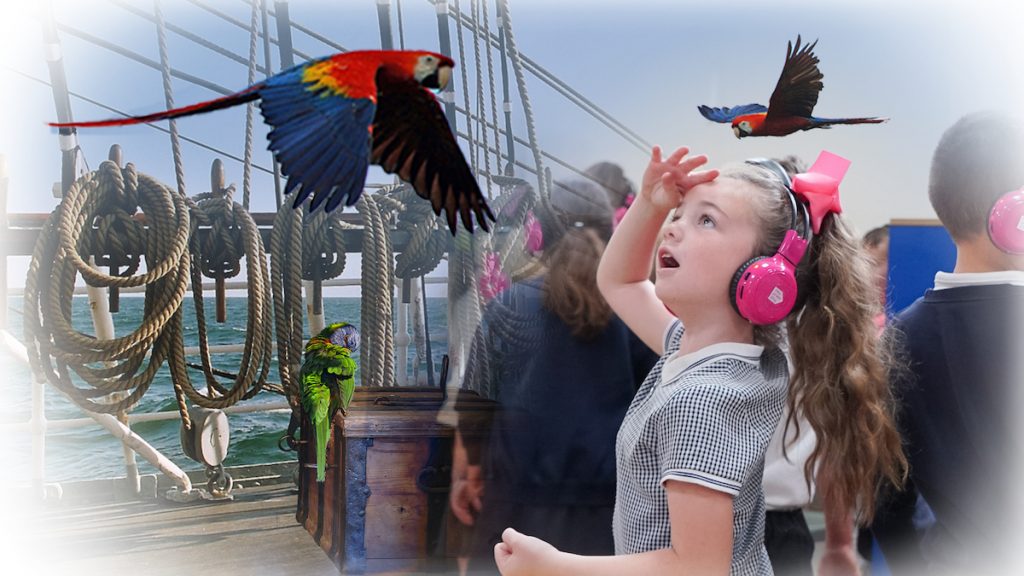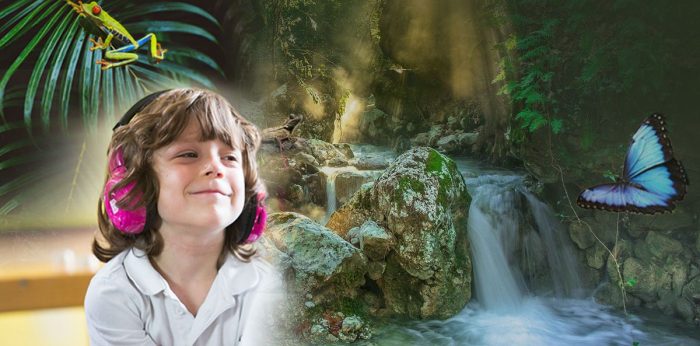
Benjamin Tassie, a composer and collaborator with now>press>play, chatted to us about his work, his music, and why engaging children in active learning is so important.
Who are you and what are you doing here?
My name is Benjamin Tassie and I’m a composer. At now>press>play, my job essentially entails upsetting children. Or scaring them, or exciting them… In other words, I take the (fantastic) scripts and add sound effects and music to make them even more emotionally and physically engaging for children. In a way, it’s a bit like composing for film: I have to heighten the narrative with music, as well as transporting the listener through sound effects and other production techniques.
So where do you begin?
I receive the script and voiceovers from the lovely people at now>press>play. First of all, I have a listen through and make any small adjustments to timing and editing so that I have a rough version of the script. Then I begin adding sound effects and room atmospheres to bring it all to life.
Wait… “room atmospheres?”
Yes — the general background sounds that make up a room or space. This could be really obvious, like people talking and market sellers if you’re at a market, or it might be subtler, like a quiet “room tone” (or hum) and some clever reverb things if you’re in, for example, an empty temple. We add those in so it feels more like you are somewhere, and then I can layer other more obvious sound effects on top.
What are the other sound effects in the Experiences?
Well, that really depends on the script. Some are really obvious, like if it says “someone’s walking up the garden path” then I can go all out with a “walking up the garden path” sound effect (like a Radio 4 drama). Some I have to be more inventive with — like adding a wolf whistle if two characters are flirting. I like those ones especially: you can make everything funnier.
What happens after you’ve added sound effects?
Then comes the music. This is either for parts where sound effects wouldn’t really work (we have some Experiences where the children need to have time to work out some maths, for example), or for when we need to heighten the emotional content or up the dramatic tension.
What kind of music do you write for now>press>play?
That really depends on the Experience. I seem to have garnered a reputation with the scriptwriters for writing music which tugs at the old heartstrings! I suppose it’s quite film-like in that way — I like to make it so children will really feel as if they’re taking part in the action. Also, I think we learn best if we form strong emotional associations.
Who else do you compose music for?
I have written for some short films, but mostly I write concert stuff or more experimental music. Lately, I’ve been working a lot with electronics. I trained at King’s College, The Royal Academy of Music, and then The Royal College of Music, so I have a strong classical background.
What drew you to working with now>press>play?
I used to teach in a special needs centre for autistic and dyslexic children, and so I was really drawn to how now>press>play engage with children who are perhaps left behind by traditional classroom teaching. As I said, I think we learn better and faster if we have an emotional attachment to something, or if we’re engaging with it on a number of levels. I really like how now>press>play does both of those things: their Experiences engage in storytelling, movement and imagination.
Read more:

